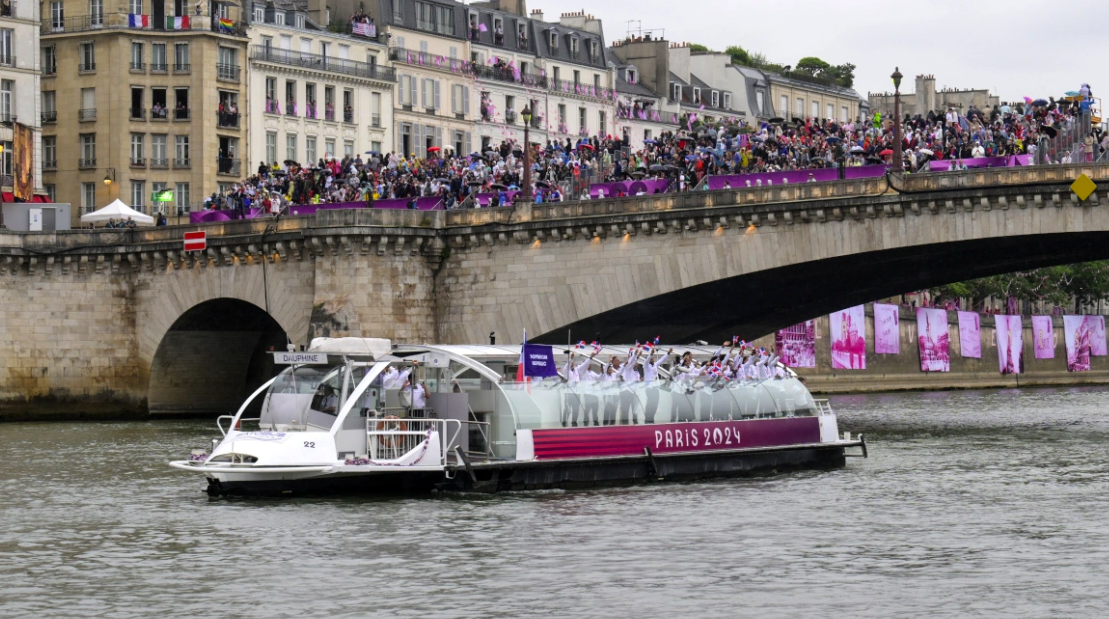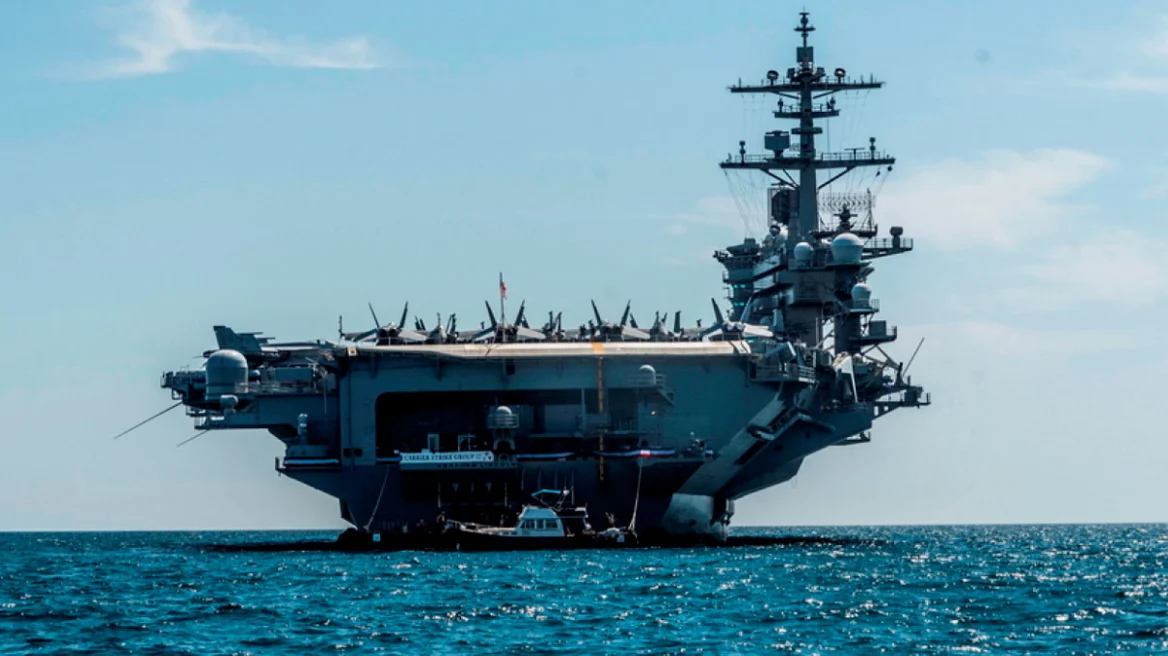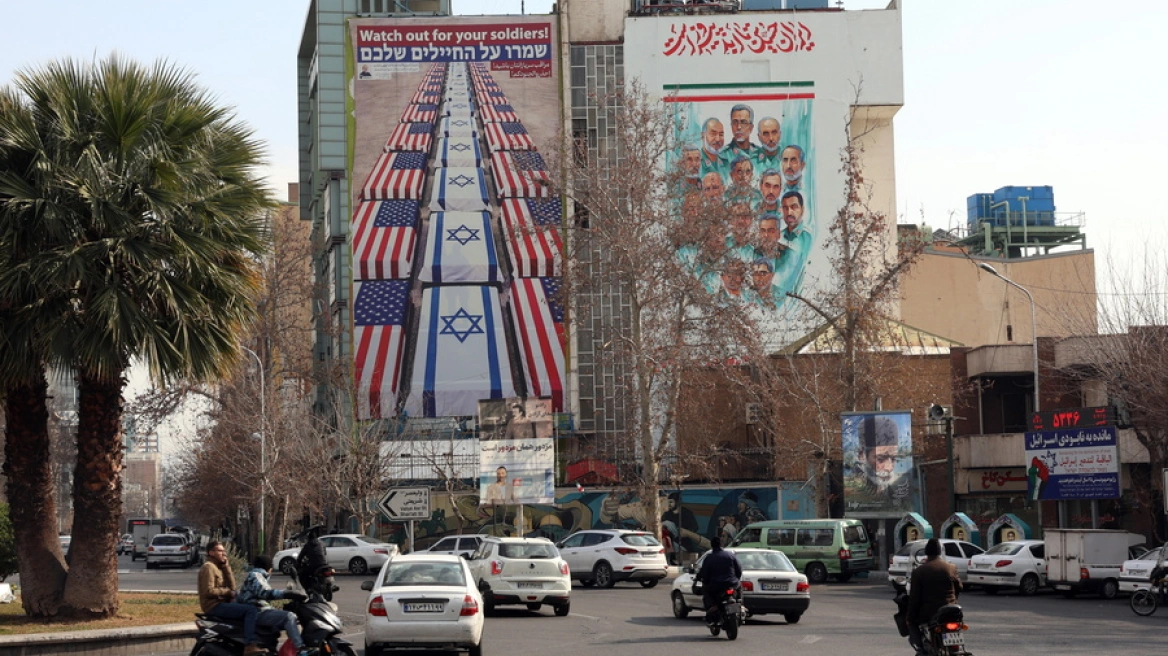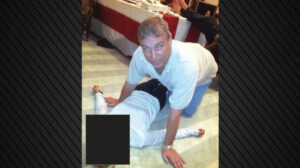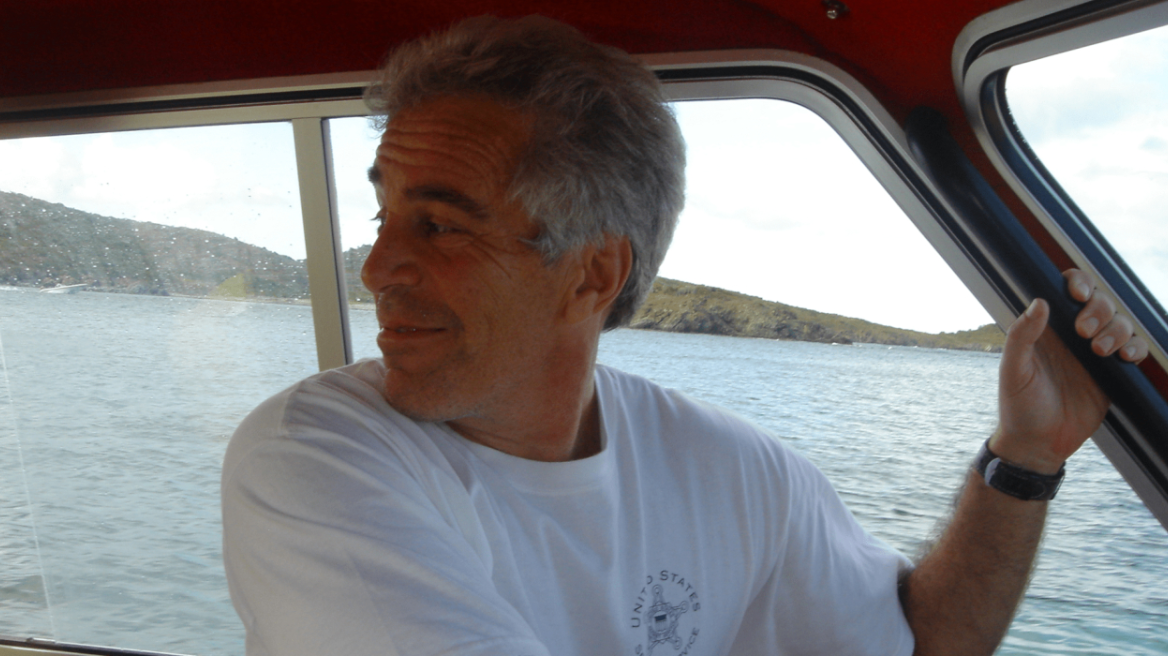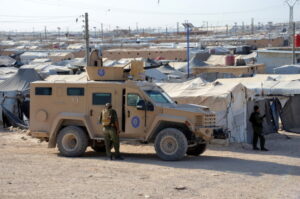Rainfall on Friday and Saturday in Paris contaminated the Seine’s waters in the following hours, forcing organizers to cancel the triathlon training scheduled for this morning in the famous river, but they remain “confident” that the events will proceed as planned on Tuesday and Wednesday.
The triathlon is the first Olympic sport to be held in the Seine before open water swimming during the second week of the Olympic Games.
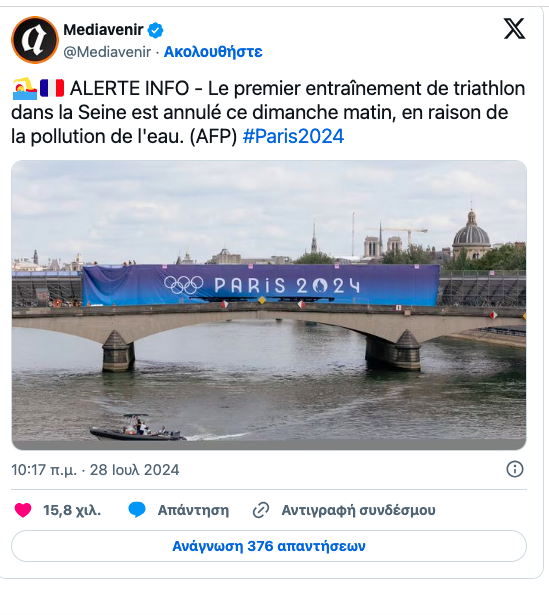
Early this morning, the Olympic Games organizing committee, the International Triathlon Federation, and local authorities made the “joint decision to cancel the swimming part of the familiarization” scheduled for Sunday, as “water pollution levels do not provide sufficient guarantees,” according to a press release.
On Saturday afternoon, organizers had already warned that the previous day’s downpour (about 16 millimeters of rain) was likely to degrade water quality. However, they did not specify the levels of E.Coli and enterococcus bacteria, which must be below a certain threshold, but emphasized “the priority of athletes’ health.”
Before the swimming events scheduled for Tuesday and Wednesday, triathletes have the opportunity to “familiarize” themselves with the river, even if some choose to continue training in a pool, especially in the legendary George Vallerey pool in eastern Paris, where athletes swam during the 1924 Olympic Games. “The running and cycling events” for Sunday morning’s training “will take place as scheduled,” organizers announced.
The cleanup cost €1.4 billion
It is worth noting that the cleanup of a water system running through Europe’s most populous metropolitan area cost €1.4 billion ($1.5 billion), with the southern super sewer alone requiring expenses of €300 million.
Cleaning the Seine, the venue for triathlon and open water swimming events during the Paris Olympic Games, was one of the logistical challenges faced by the French organizers. According to Bloomberg, the cleanup cost €1.4 billion.
Since 1923, swimming and diving in the Seine have been banned mainly due to health risks from dirty water and bacteria.
Thus, Paris 2024 had to tackle a complex and costly project, supported by the state, involving sewage management, treatment facilities, filtering stations, and rain basins to reduce bacterial pollution of the river from fecal waste.
After the sporting event, authorities plan to create local beaches and swimming areas in the Seine, which will be open from 2025. Like Copenhagen, Munich, or Zurich, Paris and its surroundings want residents to be able to use the city’s open waters for cooling off, a common practice in the 17th century.
Paris seriously considered the idea of making the Seine suitable for swimming as early as 1988 when then-mayor Jacques Chirac first promised to clean the river. The plan remained on the shelf for decades.
The full cleanup of the Seine was proposed as part of Paris’s bid to host the Olympic Games, as a way for city leaders to show that hosting the games would “ensure that our bid would be useful for Parisians.” The actual work began in 2016. In 2017, Paris inaugurated open water swimming spots along the recently cleaned eastern chain of the city’s canals, which flow into the Seine.
Paris already has experience with how difficult it is to keep open waters clean: the new swimming spots in the canal had to be temporarily closed several times due to bacteria in the water, though they mostly remained open. As for the main volume of the river, pre-Olympic water quality was challenging due to recent heavy rains, and the new infrastructure was not sufficient to prevent unwanted bacteria from being detected in early July. Since then, drier conditions have improved the situation, and the water was expected to remain clean for the events, which proved to be wishful thinking as the quality deteriorated with the first heavy rain.
Ask me anything
Explore related questions
